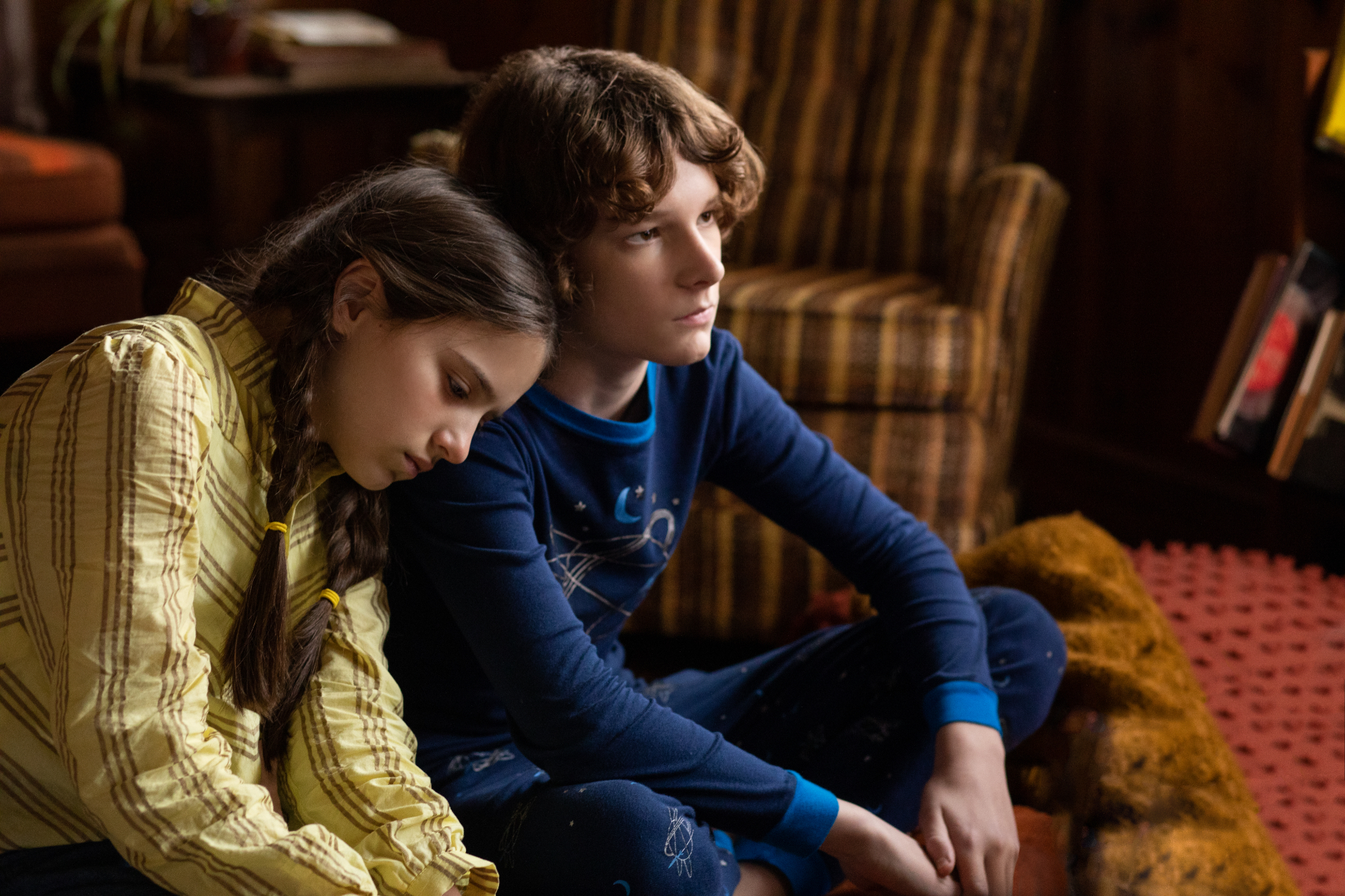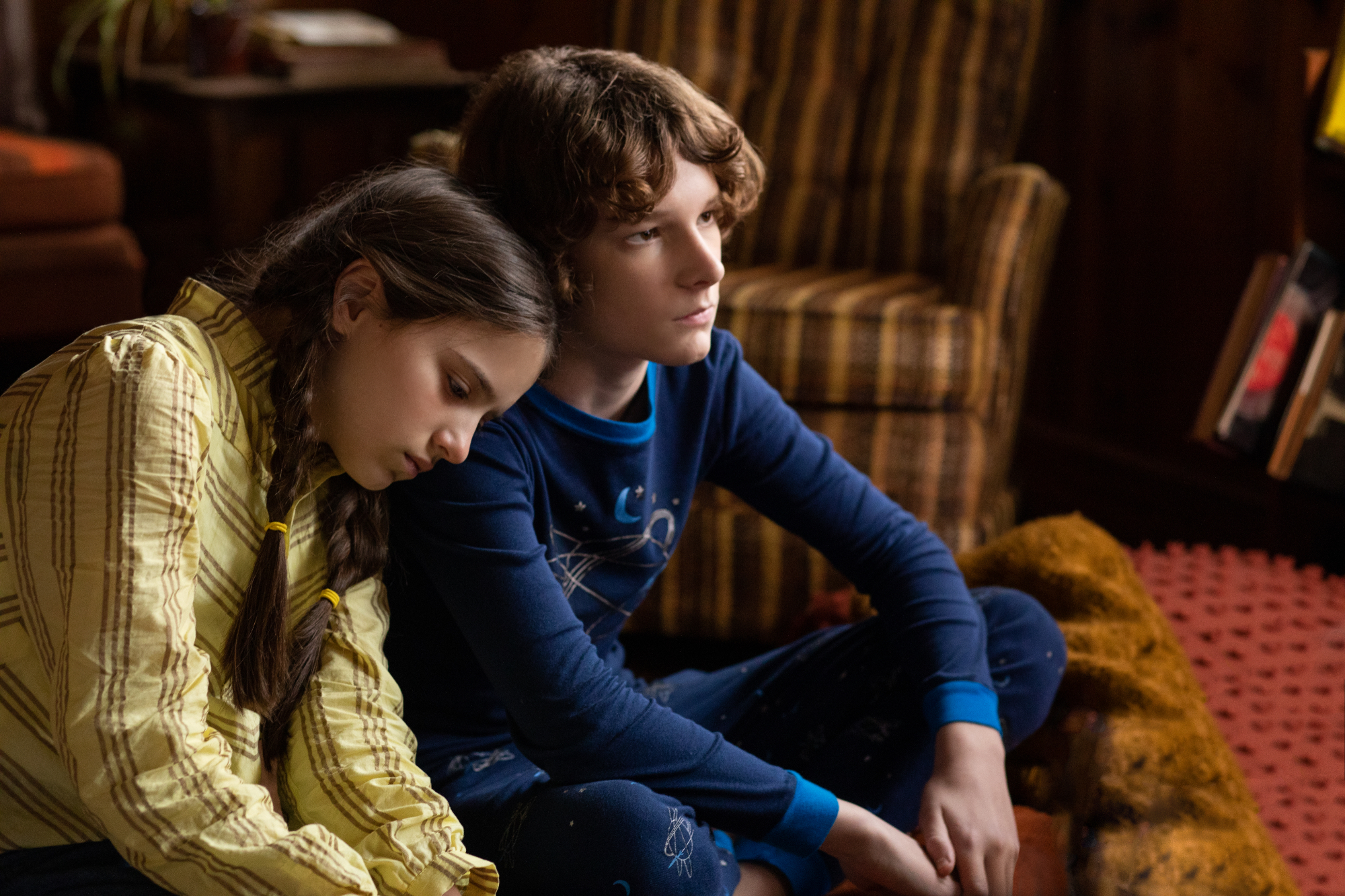
‘The Black Phone’ Director Reveals ‘Riskiest Scene’ of His Career Was Almost Cut
The Black Phone is a horror movie that is sure to push a lot of buttons due to the young age of the victims. However, writer/director Scott Derrickson explained that he didn’t go quite as far as he could have. There’s one scene from The Black Phone that Derrickson called the riskiest one of his career that he almost had to cut from the final product.
‘The Black Phone’ explores childhood fear

Bloody Disgusting interviewed Derrickson to talk about The Black Phone and how childhood fear bled into each scene. This is largely thanks to the wonderful performances from Mason Thames and Madeleine McGraw, who translate these terrors to the silver screen.
“I think The Black Phone is scary, but I think the better word to describe it as a primarily emotional experience for the audience; as I have watched them watch it is very suspenseful,” Derrickson said. “I think the suspense is unrelenting in the movie because there is a sustained sense of the audience’s hopes and fears for these characters that they came to care about. Because the actors are so good.”
Derrickson continued: “By the time Finney is abducted, which you know from the trailer, and separated from Gwen, you care about both of them. You care about what happens to them. You feel afraid that he’s going to suffer the same victimhood as the others. Also, anybody who knows my work knows that it could end badly. You know? That’s absolutely on the table.“
Scott Derrickson almost had to remove the ‘riskiest scene’ of his career in ‘The Black Phone’
Derrickson revealed that one scene was considered too risky for The Black Phone, so he was asked to remove it from the final cut. However, he found it to be entirely necessary to the story. He told Bloody Disgusting that he didn’t want to push the movie too far with it revolving around a cast of children.
“I don’t think you want to push it as far as you can,” Derrickson said. “There’s a line you can cross in dealing with children. I think that probably the riskiest scene I’ve shot in my career is Gwen getting whipped by her father. That was a scene.”
Derrickson continued: “There were some people involved in the movie who asked me to take it out, and I was like, ‘The movie won’t work without it.’ I was adamant. It’s there to show the trauma they deal with daily, but also their bond. You feel for them and how they care about each other and have each other’s back in that scene. But at the same time, there was a way to do that scene that would turn everyone off.”
Scott Derrickson focused on the performances over the imagery
As a result, Derrickson had to approach such a scene in The Black Phone with care. He didn’t want to focus too much on the imagery but focused on the tremendous performances. As a result, he was able to achieve something much more raw and real.
“So, I picked the location because I knew I wanted not to see the actual whipping,” Derrickson told Bloody Disgusting. “I wanted the audience to feel it more than actually, see it happen. The vast majority of that happens behind the counter. You don’t see it happening. You feel it more in the performances of Jeremy Davies and his rage and what you hear from Gwen. Then when Gwen stands back up, she doesn’t get whipped again.”
Derrickson added: “That’s the most emotionally harrowing part of the scene. The most upsetting part of the scene, what people think of as the whipping scene, is the second scene when she’s not getting whipped, but when he’s berating her. God bless Madeline. Her performance in that scene is so truthful, so raw, and real.”
How to get help: In the U.S., call the National Domestic Violence Hotline at 1-800-799-7233 or text START to 88788.


